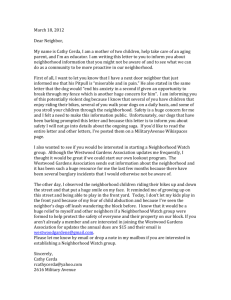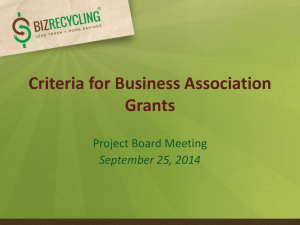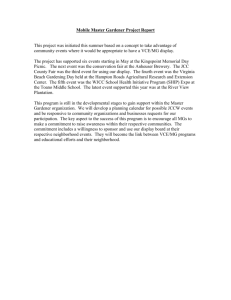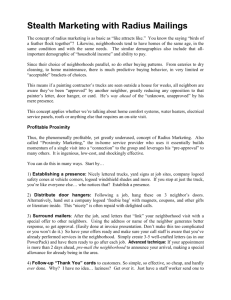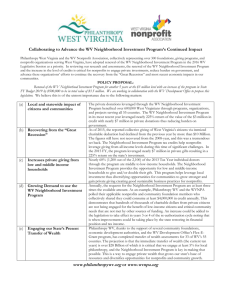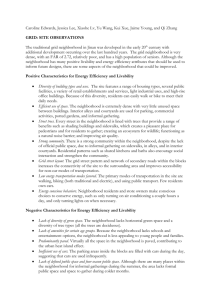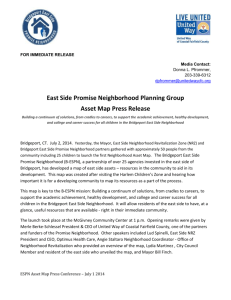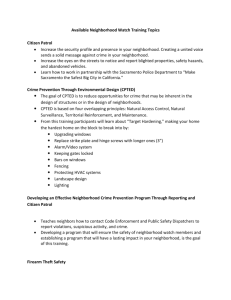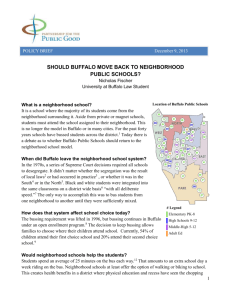How to create a neighborhood association
advertisement
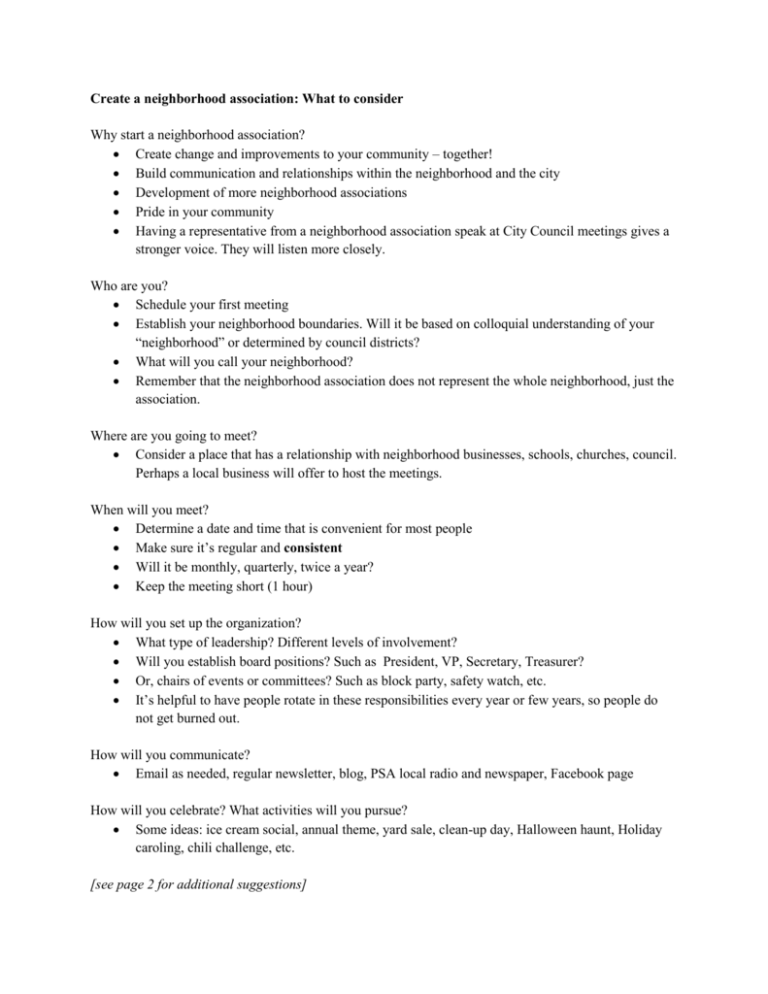
Create a neighborhood association: What to consider Why start a neighborhood association? Create change and improvements to your community – together! Build communication and relationships within the neighborhood and the city Development of more neighborhood associations Pride in your community Having a representative from a neighborhood association speak at City Council meetings gives a stronger voice. They will listen more closely. Who are you? Schedule your first meeting Establish your neighborhood boundaries. Will it be based on colloquial understanding of your “neighborhood” or determined by council districts? What will you call your neighborhood? Remember that the neighborhood association does not represent the whole neighborhood, just the association. Where are you going to meet? Consider a place that has a relationship with neighborhood businesses, schools, churches, council. Perhaps a local business will offer to host the meetings. When will you meet? Determine a date and time that is convenient for most people Make sure it’s regular and consistent Will it be monthly, quarterly, twice a year? Keep the meeting short (1 hour) How will you set up the organization? What type of leadership? Different levels of involvement? Will you establish board positions? Such as President, VP, Secretary, Treasurer? Or, chairs of events or committees? Such as block party, safety watch, etc. It’s helpful to have people rotate in these responsibilities every year or few years, so people do not get burned out. How will you communicate? Email as needed, regular newsletter, blog, PSA local radio and newspaper, Facebook page How will you celebrate? What activities will you pursue? Some ideas: ice cream social, annual theme, yard sale, clean-up day, Halloween haunt, Holiday caroling, chili challenge, etc. [see page 2 for additional suggestions] Additional recommendations: Keep an agenda and meeting minutes of each neighborhood association meeting. This will provide a record or history of all the things you have done to improve your community, will keep projects on track, and hold members accountable. Set up a neighborhood coordination council meeting, where representatives from each neighborhood association in your town will meet. This meeting should include representatives from the police or fire marshal to deliver a report, city manager, and others from municipal government. The coordination council should meet regularly and consistently, such as once per month.


